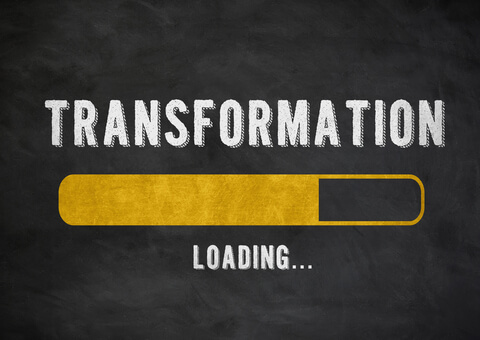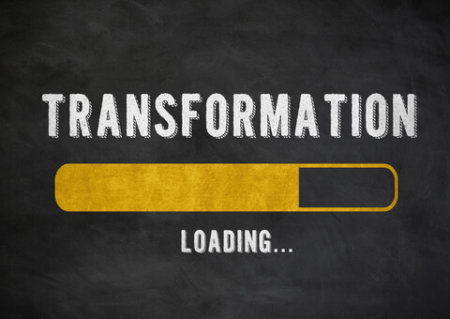Business transformation won’t work if you don’t have a culture that backs it
You can’t move for statistics on the numbers of companies that are discussing a business transformation as a result of the pandemic or have  accelerated their plans because of it. For many leaders, transforming their business is about adopting a digital first approach. This is costly, resource intensive and time consuming. None of which is ideal for a company that needs to be competitive in a period of economic shock.
accelerated their plans because of it. For many leaders, transforming their business is about adopting a digital first approach. This is costly, resource intensive and time consuming. None of which is ideal for a company that needs to be competitive in a period of economic shock.
Yet really digital transformation isn’t the objective. Business transformation is. If you want to effect real change that affords you more agility to respond to fluctuations in market forces and
react to new market entrants then you need people who can adapt, processes that are flexible and customers who are also willing to change with you.
Projects fail because skills are lacking to deliver real business transformation
I think this point about people really hit home when I read that around a third of digital transformations fail because of skill. Certainly my experience of this testifies to just how important skill is. We’ve helped many leadership teams re-evaluate their approach to implementing strategy which overlooked, or only considered a subset of the organisation’s employees.
Of course, in this case skill meant the digital skill – the software developers, the experts in system integration and design. And there is no doubt there is a dearth.
But there is also a tendency to focus only on the shiny part of the business transformation. Having worked with companies embarking on complex transitions, it’s clear they can get bogged down in the bit that digitises a process. They must also consider the bigger picture. Success rests on having people who understand how the applications will be used and how they fit into the wider view of changing how business is done across every function. That’s because business transformation isn’t about e-commerce platforms. It’s also about optimising supply chains, ensuring the right people are hired to suit the new business direction, and that customer-facing teams are trained and equipped to help every customer, brilliantly every time.
it’s clear they can get bogged down in the bit that digitises a process. They must also consider the bigger picture. Success rests on having people who understand how the applications will be used and how they fit into the wider view of changing how business is done across every function. That’s because business transformation isn’t about e-commerce platforms. It’s also about optimising supply chains, ensuring the right people are hired to suit the new business direction, and that customer-facing teams are trained and equipped to help every customer, brilliantly every time.
Such programmes are massive and though leaders may have a vision no one can be precise about what reality will look like, or totally understand the impact it will have on culture and skills until it happens.
It’s no surprise then that we’ve been contacted several times in the last few months by leaders and training teams tasked with bringing the vision to life but in such a way they that minimise risk and take the right people with them on the journey.
I can’t click my fingers and take the pain away, but I can help them develop simulations and games that put people and process through their paces, helps uncover the pinch points and gets people in the mindset of adopting new ways of working that will support real business transformation.
Getting the right mindset and people in place to deliver real buisiness transformation
Over the last 20 years I’ve worked with companies in the FTSE, scale ups who have gone to IPO, through to government bodies, county councils and educational establishments. All this experience adds up to a set of tried and tested processes for developing simulations that work. They help people identify their readiness for change, their strengths and weaknesses and in some cases their fit for the organisation.
This last point is crucial. You can’t afford to have people who rub against the organisation’s purpose and ethos. Simulations can also uncover the skills people didn’t know they had and help identify the candidates for roles being created. Ultimately, when done well, everyone knows exactly how they can contribute to future success and positive change happens.
The ultimate guide…
As there is such an appetite for simulations at the moment, I’ve written a guide for leaders to refer to when ‘The ultimate guide to building business games and simulations that work’ . It covers the 10 steps you must put in place for success and includes case studies and detailed explanations.
Of course, if you’re not able to commit to designing and delivering simulations yourself then I can help – just message me to chat through the situation you face and how I’d approach the challenge. (See how we did it for Warwick County Council as it embarked on digital transformation here)

